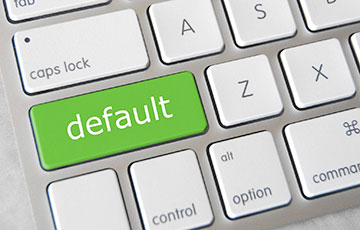Bloomberg: Russia Defaults On Foreign Debt
17- 27.06.2022, 23:23
- 26,934

Holders of Russian Eurobonds did not receive timely payments on bonds.
On the night of June 27, Russia defaulted on foreign debt for the first time since 1918, as the grace period on about $100 million of snared interest payments on government bonds expired. Bloomberg reported this on Monday, June 27.
There will be no official announcement of the default. International rating agencies usually make this, but they have all suspended their activities in Russia, according to Bloomberg. At the same time, bondholders could make such an announcement, but they are still trying to assess what are the chances of returning all or at least part of their money, the agency writes. According to Deutsche Welle, creditors can announce default if a quarter of bondholders agree.
Bloomberg writes that this is the first Russian default on foreign debt since 1918 when the Bolsheviks abandoned the debts of the czarist rule.
Russia has money but can't make transfers
In April, the US Treasury did not renew a temporary licence that made an exception to the sanctions and allowed Russian bondholders to receive payments from Russia. This licence expired on May 25th. By the evening of May 27, holders of Russian Eurobonds had not received payments on bonds for almost $100 million. This means that the countdown of 30 days has begun before the announcement of a default on these payments.
British Citibank refused to act as a paying agent for Russian dollar issues due to sanctions. The Ministry of Finance eventually transferred these functions to the National Settlement Depository (NSD), deposited funds into the account and declared that it had fulfilled all the obligations. Later, the NSD was included in the sixth EU package of sanctions. The Kremlin called this Brussels decision an attempt to push Russia into an 'artificial default'. On June 22, Russian President Vladimir Putin signed a decree on the temporary procedure for fulfilling obligations on Russia's external debt in foreign currency, which implies making payments in rubles.
"The creation of artificial barriers for the Russian Federation to service the state's foreign debt is necessary in order to put the 'default' label," Russian Finance Minister Anton Siluanov said last week. "You can declare anything, and try to label that. However, everyone who is familiar with the situation understands that this is not a default. To be honest, this whole situation looks like a farce," Siluanov said.
Outcast state marker
“It’s a very, very rare thing, where a government that otherwise has the means is forced by an external government into default,” said Hassan Malik, senior sovereign analyst at Loomis Sayles & Company LP, to Bloomberg.
Bloomberg calls the 'default' rather symbolic for the Russian economy and Russians 'dealing with double-digit inflation and the worst economic contraction in years'. “It’s a grim marker in the country’s rapid transformation into an economic, financial and political outcast,” the agency says.









